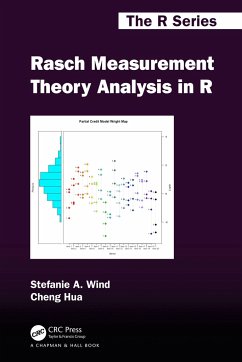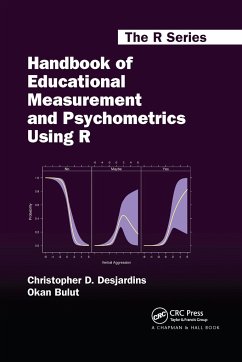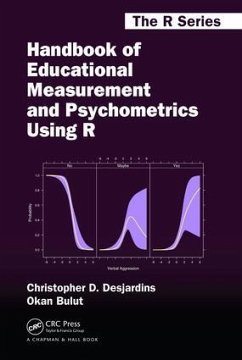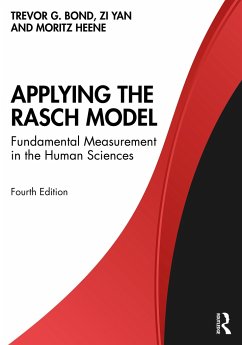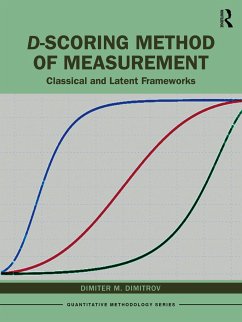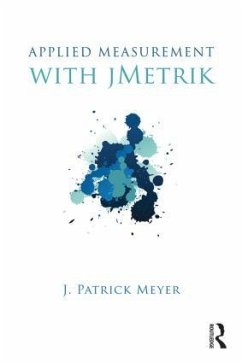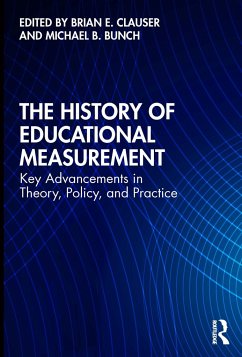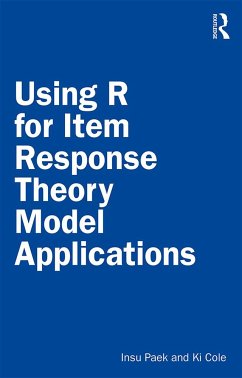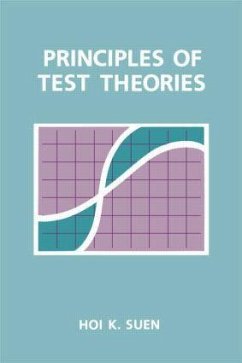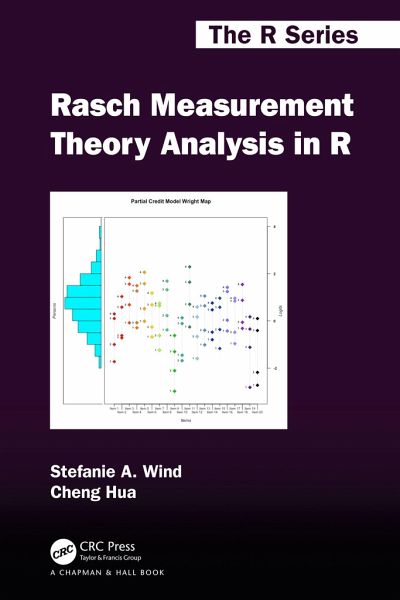
Rasch Measurement Theory Analysis in R
Versandkostenfrei!
Versandfertig in 6-10 Tagen
170,99 €
inkl. MwSt.
Weitere Ausgaben:

PAYBACK Punkte
85 °P sammeln!
Rasch Measurement Theory Analysis in R provides researchers and practitioners with a step-by-step guide for conducting Rasch measurement theory analyses using R. It includes theoretical introductions to major Rasch measurement principles and techniques, demonstrations of analyses using several R packages that contain Rasch measurement functions, and sample interpretations of results.Features:Accessible to users with relatively little experience with R programmingReproducible data analysis examples that can be modified to accommodate users' own dataAccompanying e-book website with links to addi...
Rasch Measurement Theory Analysis in R provides researchers and practitioners with a step-by-step guide for conducting Rasch measurement theory analyses using R. It includes theoretical introductions to major Rasch measurement principles and techniques, demonstrations of analyses using several R packages that contain Rasch measurement functions, and sample interpretations of results.
Features:
Accessible to users with relatively little experience with R programmingReproducible data analysis examples that can be modified to accommodate users' own dataAccompanying e-book website with links to additional resources and R code updates as neededFeatures dichotomous and polytomous (rating scale) Rasch models that can be applied to data from a wide range of disciplines
This book is designed for graduate students, researchers, and practitioners across the social, health, and behavioral sciences who have a basic familiarity with Rasch measurement theory and with R. Readers will learn how to use existing R packages to conduct a variety of analyses related to Rasch measurement theory, including evaluating data for adherence to measurement requirements, applying the dichotomous, Rating Scale, Partial Credit, and Many-Facet Rasch models, examining data for evidence of differential item functioning, and considering potential interpretations of results from such analyses.
Features:
Accessible to users with relatively little experience with R programmingReproducible data analysis examples that can be modified to accommodate users' own dataAccompanying e-book website with links to additional resources and R code updates as neededFeatures dichotomous and polytomous (rating scale) Rasch models that can be applied to data from a wide range of disciplines
This book is designed for graduate students, researchers, and practitioners across the social, health, and behavioral sciences who have a basic familiarity with Rasch measurement theory and with R. Readers will learn how to use existing R packages to conduct a variety of analyses related to Rasch measurement theory, including evaluating data for adherence to measurement requirements, applying the dichotomous, Rating Scale, Partial Credit, and Many-Facet Rasch models, examining data for evidence of differential item functioning, and considering potential interpretations of results from such analyses.




